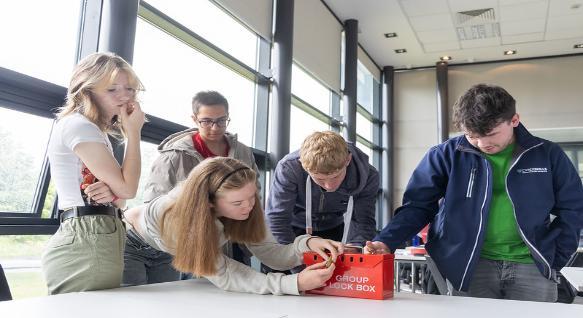What is Penetration Testing? Discover the Art of Ethical Hacking
07 Aug, 2023
Min read

The objective of penetration testing is not to cause harm or damage but to simulate an actual cyber attack with the intention of uncovering potential vulnerabilities before malicious hackers can exploit them. This process allows organisations to gain valuable insights into their security posture and strengthen their defenses to protect against future attacks effectively.
When you are a student of one of our courses, you will benefit from the first of its kind world class cloud based Cyber Range. The Cyber Range provides a secure, sandboxed area which simulates real-world feel scenarios and environments where students can test their new skills. Labs and assignments will be used to reinforce the content from the lectures. A full range of scenarios will provide the opportunity to test the vast array of techniques required to keep ahead in this challenging ever changing environment.
The penetration testing process typically follows a systematic approach:
1. Planning and Scoping:
At the outset, the penetration testing team collaborates with the organisation's stakeholders to understand the objectives, scope, and constraints of the test. They define the rules of engagement, specifying what systems can be tested, the types of tests to be conducted, and the potential impact on the organisation.
2. Reconnaissance:
The penetration testers gather information about the organization's infrastructure, applications, and possible attack vectors. This may involve passive information gathering from publicly available sources, known as open-source intelligence (OSINT).
3. Vulnerability Analysis:
The testers analyze the gathered information and perform a detailed assessment of the organization's systems and networks to identify potential vulnerabilities. These vulnerabilities can include outdated software, misconfigurations, weak passwords, or unpatched systems.
4. Exploitation:
With the identified vulnerabilities in hand, the testers attempt to exploit them in a controlled and ethical manner. By exploiting these weaknesses, they demonstrate how attackers could potentially gain unauthorized access or control over the systems.
5. Reporting:
Upon completing the penetration testing exercise, a detailed report is provided to the organization. The report includes an overview of the findings, the vulnerabilities discovered, the potential impact of these weaknesses, and recommendations for remediation and security improvements.
Penetration testing serves as a vital tool for organisations to evaluate their security measures, understand potential risks, and enhance their cyber defense capabilities. By identifying and addressing vulnerabilities proactively, organisations can fortify their security posture and minimise the likelihood of falling victim to real-world cyber threats.


.jpg)
